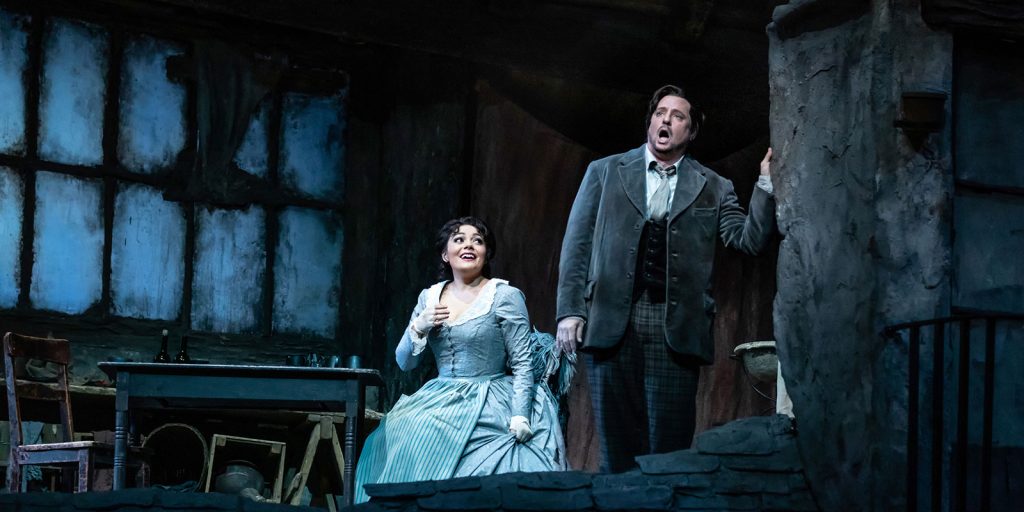“La Bohème” is Giacomo Puccini’s Italian opera about love and loss in the bohemian world of 1830’s Paris. The tragic love story of Mimi and Rodolfo, set in 1830s Paris, helped defined our modern concept of the bohemian artist.
It premiered at the Teatro Regio in Turin, Italy in 1896, and at the Metropolitan Opera in 1900. Today, it is the world’s most popular opera.

In 2023
Puccini’s “La Bohème, the classic bohemian love triangle, is at the Metropolitan Opera in Lincoln Center; for 18 performances between October 10, 2023 and January 13, 2024. In Italian, with Met Titles. From $37. metopera.org 🇮🇹
Franco Zeffirelli Production
Zeffirelli (Italian, 1923) is a filmmaker who is best known for his version of Romeo and Juliet (1968), and The Taming of the Shrew (1967) starring Elizabeth Taylor and Richard Burton.
He produced La Bohéme, Tosca, Turandot, and Don Giovanni for the Metropolitan Opera.
“La Bohème” Setting
The story is set in 1830s Paris when the prototypes of the modern bohemian artist were first established.
Today the same story plays itself out in every urban center including right here in New York City.
“La Bohème” Roles
- Mimì, a seamstress.
- Rodolfo, a young poet.
- Musetta, a singer.
- Marcello, a painter.
- Schaunard, a musician.
“La Bohème” Synopsis
“La Bohéme” tells the story of Rodolfo, a young poet, and Mimi, an embroiderer and their bohemian friends. A blown-out candle and a lost key are moments that lead them to fall in love, just as all loves have their magic moments. Rodolfo, Mimi and their friends enjoy a raucous evening at Café Momus. Mimi has tuberculosis and knowing that in his poverty he cannot help her, Rodolfo and Mimi decide to end their relationship, but stay together until the Spring.
Some time later Rodolfo is feeling lonely. Mimi has taken a wealthy patron and is seen dressed like a queen. Some time later, Mimi is found on the street very weak from her tuberculosis. Rodolfo brings her in and they reminisce about falling in love and their happy times together. Mimi dies in his arms as Rodolfo laments.
